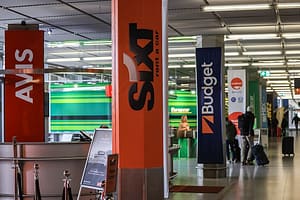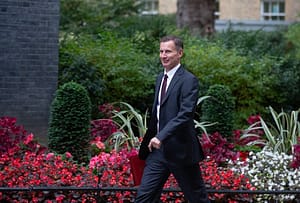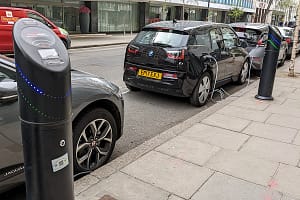Find out direct from the dealers which new party drugs are rotting bankers’ brains, and how big the problem is
LondonlovesBusiness.com has exclusively revealed that one in 10 London managers are using drugs at work – so how big is the problem in the Square Mile, notorious for its stress and excess culture?
Sam plonks himself down in Corney & Barrow’s Broadgate Circle wine bar and orders a triple Jack Daniels with plenty of ice. His face and neck are covered with angry welts – “I went on a three-day bender and wrapped my scooter round a lamp post,” he offers unprompted, cackling at the memory. “Slept right through yesterday, don’t remember it at all.”
Also known as “Scooterboy” to friends and clients, Sam (his chosen nom de plume) is personable, fidgety, super-skinny (a result of his cocaine-and-bourbon diet) and a mainstay of London’s malleable, ever-changing drugs scene.
He supplies everyone (though he’s very careful, only meeting “new” clientele after two approvals from trusted customers) with everything under the sun, zipping around London on his Vespa with bags of white powder and vials of headrot hidden in various concealed pockets. “You name it, I can get it,” he boasts.
“London is awash with cocaine”
London’s twin financial centres, the Square Mile and Canary Wharf, are home to more wealthy, young, driven bankers and traders than any other stretch of urban jungle on the planet.
Hours within London’s hyper-competitive banking scene are brutal – perhaps more so since the financial crisis and ensuing recession. All too often these young guns (and a fair sprinkling of veteran dealmakers) can only maintain their crazy schedules by blending a regimen champagne and Scotch (in order to lubricate clients) with a dizzying mixture narcotics.
John, an energy banker, was found at 4am wandering Bethnal Green stark naked, having lost everything – watch, wallet, mobile phone, even his £400 Church’s shoes
As London changes, so does Sam’s shopping list. The recession starting in late 2008, caused drug use to briefly spike, before topping out and then plummeting (as bankers realised that the financial world was not entirely doomed). His profits, drawn almost entirely through the sale of Coke, listed as a “Class A” drug since 1971, fell in 2009 to 50 per cent of their pre-recession levels.
In the past year they have picked up again as banks hired in fresh blood, and those young traders in turn saw there was no better way to impress their clients and maintain a 24-hour lifestyle than by turning to Scooterboy’s magic bag.
But the recession did more than shed stock prices and liquidate a handful of finance houses. It changed the way drug-taking was accepted, tackled, and perceived within the Square Mile.
First, a bit of history. It is fair to say that London bankers, as a rule, tend to drink, socialise and get higher faster and more often than any geographically comparative group of finance workers. Suppliers are everywhere, from Scooterboy Sam to the infamous ‘Martini’, a young, good-looking chap so-called because, like the advertising jingle, he used to be able to supply you “Anytime, any place, anywhere”.
“London is awash with cocaine,” says Geraint Anderson, a former stock-picker at Dresdner Kleinwort and author of Cityboy: Beer And Loathing In The Square Mile. “In my 12-year banking career one of the things I saw was that there was less professionalism, and more drug-taking in London than in any other city.”
This, of course, makes sense – there are more bankers and traders in London than any other city. But it also chimes with the perception, trotted out by redtop tabloids and reinforced by statistics and anecdotes, that the Brits are boozier and more hedonistic than their foreign counterparts. “Certainly there has always seemed to be a greater tendency for British bankers to play hard work hard and hang the consequences,” notes Anderson.
Many young traders arriving from Germany or France (the “posh Eurokids”, as Anderson describes them) or America, Asia or Australasia, only to get (often very happily and easily) sucked in to London’s louche lifestyle.
Add to this the traditional London trader – the East End barrowboy type, whose daily diet includes a liquid lunch, a Burger King Whopper wolfed down on the last train home, and the latest buzz on offer from Scooterboy and his ilk – and you have quite a concoction pulsing around London’s collective digestive system. It’s a wonder than anyone gets anything done at all.
The City’s appetite for new drugs
But back to the recession. The last few years have changed the drugs scene in the Square Mile, and in many predicted and unforeseen ways.
High prices and drugs tests have hurt cocaine’s reputation, as have rising levels of impurities
Drug use is almost certainly down on pre-recession levels. There are no solid stats on this, but the British arm of Narcotics Anonymous, which works in the same vein as the 12-step Alcoholics Anonymous model, reckons that attendance across its many weekly London meetings has risen consistently, year on year, since the recession. They are wary about trotting out statistics – the organisation is, after all, “anonymous” – but one worker interviewed at a weekend NA meeting in the City reckoned that a third of all new post-recession inductees are bankers.
Some bankers, clearly, are deterred by the fear of the random drug test. Most City firms impose inspections sporadically and half-heartedly (they often occur just once, when you join a firm, and never again), but that is often enough to discourage potential and existing users. Nothing strikes fear into the heart of a banker, notably one with a young family and school bills to pay, more than losing his job (and probably his work permit) for a criminal misdemeanour.
Others are dissuaded by cost. The cost of cocaine, in its purer African and South American forms, and in its man-made concatenation (usually imported from Russia) has doubled in price since the recession, to £52,000 a kilo, from £25,000. The reason for this is twofold: a weak Euro, and terrorism (drug seizures have increased hugely in the wake of 9/11 and the 7/7 London bombings).
Yet the fear of losing one’s job has in many ways merely forced the drugs scene to shrink in some areas and metastasise in others.
Cocaine, for sure, is down in popularity and usage. High prices and drugs tests have hurt its reputation in the City, as have rising levels of impurities. All too often these days it is cut with “magic”, a term for the crazy glue that maintains the drug’s consistency.
But that has merely led to the rise of other drugs, notably Mephedrone (also called Miaow Miaow, and with similar effects to cocaine and amphetamines) and Gamma-Hydroxybutyric Acid, or GHB (both are “Class B” drugs).
Date-rape drugs, coke and miaow miaow: the come down
GHB makes your tongue crack and blister (particularly if you are using the cheap Chinese version)
These new drugs are curious beasts. Their allure is easy to understand. Both are cheap – ten centilitres of GHB, known in the market as “G”, costs £20-£30 and will last you two days (a similar amount of coke will set you back £400-£500) – and do not currently show up in drug tests at leading banks. (There is a reason for this. Banks know that their employs use “G”. And while they want to be seen to be strict on drug usage, they know that many traders only thrive thanks to the judicious use of stimulants. Thus, they are tardy in testing for “new” narcotics).
But while coke might seriously dent a banker’s wallet, GHB carries
with it other, pernicious side effects. Often referred to as GBH, it can cause users, both male and female, to become sexually predatory – not for nothing is it loosely classed as one of several so-called “date-rape drugs”.
It makes your tongue crack and blister (particularly if you are using the cheap Chinese version – so if you do partake, ask for the slightly more expensive German version) and it accumulates in your blood stream, so that rising usage can cause headaches and, on occasion, make users black out, slipping briefly into a coma.
Others find their memories of the night before embarrassing (“It causes me to dance like a headless chicken, and not in a good way”, notes one Australia-born banker. Another, John, an energy banker, was found at 4am by his girlfriend wandering the streets close to his apartment in Bethnal Green. He was stark naked, having lost everything – watch, wallet, mobile phone, even the £400 pair of Church’s shoes he bought that week. “I was more than a bit gutted,” he said. ‘Plus, I had no idea how I had got there, or had any memory at all about the previous night.” He says he hasn’t taken G since.
This is probably a good thing. Drugs may help some bankers get through the day, and the careful use of banned narcotics may extend a City career for a few years, but others crack under the strain. One of Sam’s clients, a big, rugby-playing utilities trader, lost his job after the recession, but kept buying coke.
Eventually, when his money ran out, he went to extreme lengths, jumping off the back of Sam’s scooter (having received, but not paid for, three grammes of coke) at 30 miles an hour. The last Sam ever saw of our hefty friend was his back as he fled across the gardens of Notting Hill, hurdling fences and carrying a little bag of white powder. “I lost £100 but what the hell,” says Sam, shrugging. “Some people are just weird.”
The drugs scene in London, then, is as flexible and malleable as the banking industry itself. Sam reckons that while almost all of his clients were completely loyal to cocaine prior to the recession, around four in ten now use Methadone or G. That shift is likely to continue – if only because G doesn’t (yet) show up in tests, and has a lesser classification under the law.
Banks know that drugs may temper efficiency in specific cases but that overall it probably leads to greater overall productivity. Many firms offer anonymous helplines for anyone unable to kick a specific habit, from booze to barbiturates, though few users want to admit to “having a problem”. ‘You can’t expose or admit to any weakness on the trading floor,’ says Cityboy’s Anderson. ‘There are too many testosterone-fuelled young men out there and competition is too great.’
This is also, it should be noted, a hugely fragmented market, run not by the Russian or Albanian mafias but by small-scale sellers like Martini and Scooterboy Sam, operating in perhaps the world’s freest and most libertarian market place. Usage is also shifting in other ways, toward Soho and away from the Square Mile – Sam reckons he now has more customers in the media sector, notably in marketing and advertising, than in banking.
Cityboy Anderson may be half-right when he says that the days of “partying, boozing, and soaking your clients” may be over, and that the City is a “less fun place, more serious and buttoned up due to the fear of losing your job”.
But drug use in the City will likely always be with us. For proof of that, look no further than the infamous memo sent around the trading floor of one, blue-blood British merchant bank in the 1980s. “If you are going to snort cocaine,” it advised its highly-paid charges, “please do it in the toilets and not at your desks or on the trading floor”.
Modern life in London’s louche banking world isn’t really so different. Bankers may be less popular. Many may live in fear of losing their jobs. But for many, Friday night means one thing – a phone call to Scooterboy Sam and his magic bag of tricks, pills, vials and powder. Some things never change.





Leave a Comment